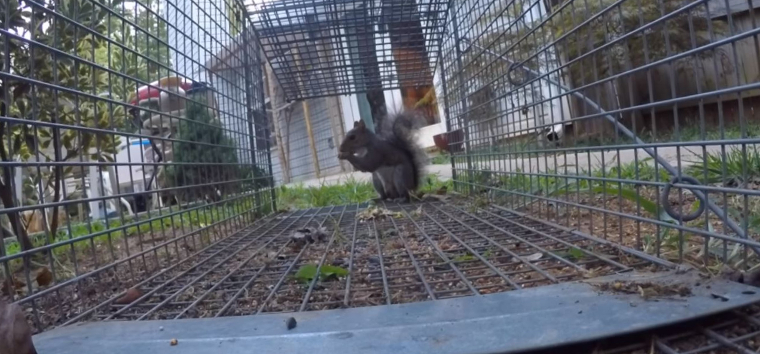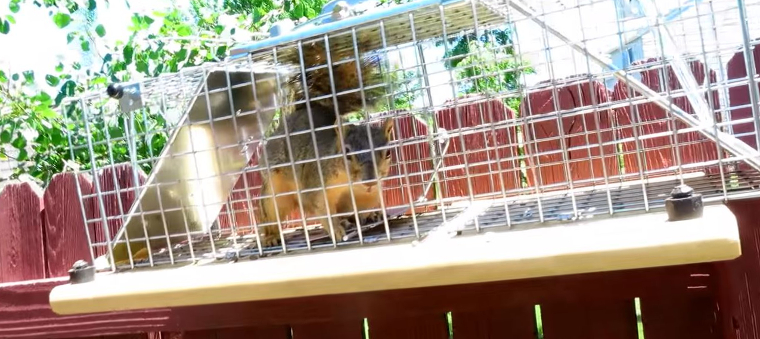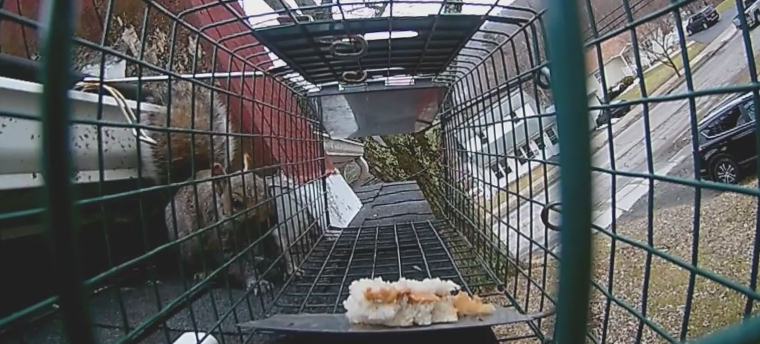-
info@aaanimalcontrol.com
Call us for help in your town
Humane Wildlife Education
What happens to squirrels after they are professional trapped?
Need squirrel removal in your hometown? We service over 500 USA locations! Click here to hire us in your town and check prices- updated for year 2020.
Each state and county will have different laws surrounding the trapping of certain species of wild animal, including squirrels. Not just restricting how you can trap the animal, these laws also dictate how you can deal with the animal once you have captured it. In some states, you must destroy the animal. In others, you may be permitted to release it back into the wild again, but only with certain permissions from the owner of that land. Some states may even prosecute you if you trap or try to transport a wild squirrel.

If you are planning on removing the squirrel problem yourself, you must make sure that you know the rules for your particular state or country. Getting caught doing something you are not permitted to do could result in fines and perhaps even prison sentences, especially if you are dealing with an endangered species that you weren't aware of.
Wildlife rehabilitators are not above these laws, although, they will always try to do what is best for everyone involved — the homeowner, the squirrel, and the rehabber him or herself. It would be foolish of a trapper to face legal action because of a released wild animal, and it would also be foolish for the trapper to release a “dangerous” wild animal back out there. One classic example of this is with raccoons — an animal that is well known for spreading potentially deadly diseases, such as rabies.
When wildlife rehabilitators trap squirrels, they will do what is lawfully right. If they are permitted to release that creature back into the wild, to start life again and hopefully live a happy one, that's exactly what will happen. If that action is not lawful, the lawful route will be taken. In many cases, that will require the squirrel to be euthanized, usually with a carbon dioxide chamber.
Where to Release a Trapped Squirrel
Need squirrel removal in your hometown? We service over 500 USA locations! Click here to hire us in your town and check prices- updated for year 2020.
Squirrels would once have lived in areas that were close to water, with plenty of trees, and preferably far away from humans and other predators. Sadly, these little ‘gardens of Eden' very rarely exist, not only because humans are cutting them down to make way for residential and commercial properties, but also because the demand for territory is high — other animals always seem to get to the best spots first.

The truth about releasing an animal that you have captured … Well, it isn't likely to survive for long. There are a number of reasons behind this, but having to fight for already inhabited spots is pretty high on the list, alongside the squirrel meeting more predators than it would once have met before. We forget that squirrels are actually much more commonly found in more urban areas than wild ones, and there are fewer predators there. Yes, you will still find coyotes, wolves, foxes, raccoons, and more, but squirrels are probably not going to come across those animals in your back yard or attic. If they are all of a sudden shoved into the same territory as those predators, they will become prey.
The debate over captured squirrels isn't more about where to release them, but whether or not you should. In some states it is actually illegal to do such a thing — release a squirrel into the wild, without permission from the owner of the land. Travel a little out of that state and you may find yourself in one where squirrel trapping is illegal, period. All of that aside, is it really humane to release a vulnerable squirrel, one that might be injured or sick, back into the wild, into a brand new habitat that it doesn't know and has to fight to remain a part of?
Wildlife rehabilitators will always try to do what is best for the animal once it has been removed from a residential or commercial property, but sometimes, what we think is best is not what is actually best for the animal. That's the kind of decision you'll need to make when you trap a squirrel, and also why trapping that animal isn't always the right approach.
What to do with a squirrel in a trap
Need squirrel removal in your hometown? We service over 500 USA locations! Click here to hire us in your town and check prices- updated for year 2020.
You have two main options when you successfully trap a squirrel. You can either:
a) release the squirrel back into the wild
or
b) humanely destroy the animal
Both of which come with their own unique set of problems that you'll also need to figure out and research beforehand.

In reality, trapping a squirrel isn't actually the best way to deal with the situation. Exclusion devices are better suited to wild animal control and removal, especially when you're talking about squirrels — determined, stubborn, and actually very intelligent animals that have an array of tools and talents on their side.
By using exclusion devices, such as one-way door style traps, you are encouraging squirrels to find another place to live, that isn't in or around your property. If you have a large enough patch of land, you could even offer up the squirrels somewhere else to live — far away from your actual building that it can't cause anymore problems.
When you trap a squirrel, the responsibility then lies on YOU to make sure you're doing the right thing. The right thing will change depending on the state you are in and the species of squirrel you're dealing with, and the rules will even change from season to season and even year to year.
In some states, you are not permitted to trap or transport squirrels, which means that you can't trap and release them. Certain state regulations mean that you can't kill pest squirrels, unless you do so in specific ways, and others will even require the correct licenses, insurances, and permits before any removal action is taken.
If you don't fancy the idea of using exclusion devices to remove squirrels from your property, give wildlife removal professionals a call. Many of them will be able to offer you a free quote and can even offer advice over the phone in the cases that you can resolve the situation on your own.
For more information, you may want to click on one of these guides that I wrote:
How much does squirrel removal cost? - get the lowdown on prices.
How to get rid of squirrels - my main squirrel removal info guide.
Example squirrel trapping photographs - get do-it-yourself ideas.
Squirrel job blog - learn from great examples of squirrel jobs I've done.
Squirrels in the attic - what to do to solve the problem.


















